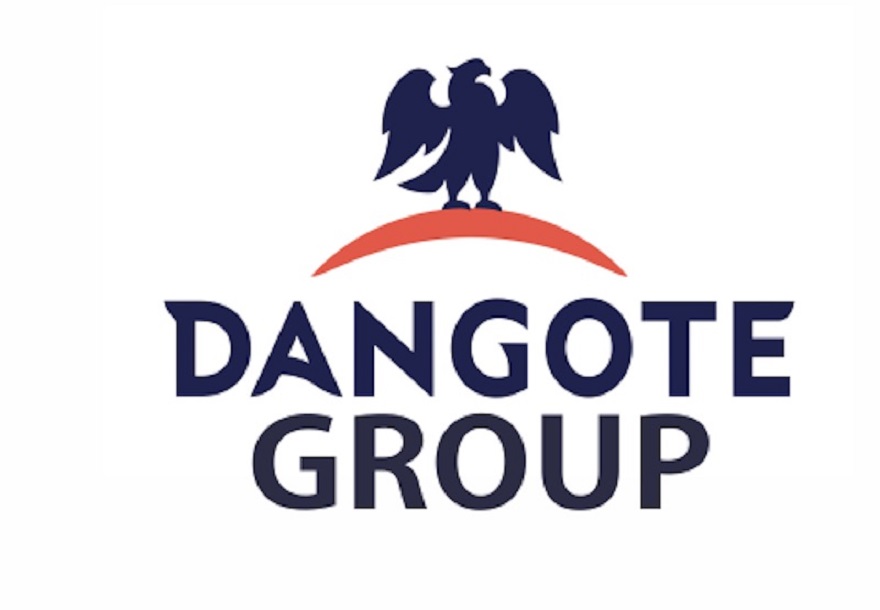Economy
How Do You Set Up A Representative Office In China

An increasing number of Western businesses are looking to establish operations in China in order to support their marketing efforts and get access to the Chinese market. A business can effectively market its services in China and draw customers by opening a representative office there.
Compared to foreign-invested corporations in China, it is simpler for international businesses to establish representative offices. As a result, China offers several chances for both new and current businesses to grow.
Companies who want to achieve that must pick the right legal framework for their operations in China. Each structure has benefits and drawbacks, so business owners and executives should carefully assess which best suits their aims and objectives.
What Is A Representative Office?
A representative office is a location set up by a business or other legal body to carry out marketing and other non-transactional tasks, typically abroad. Since they are not utilized for actual “business,” representative offices generally are easier to create than a branch or subsidiary (e.g., sales).
The organization that serves as the liaison between the Head Office and the Representative Offices abroad is the Representative Office. Foreign investors have made substantial use of them in developing nations like China, India, and Vietnam.
They are constrained since they cannot invoice locally for products or services. Foreign investors are frequently used in industries including product procurement, quality assurance, and liaison work.
Setting Up A Representative Office In China
Getting appropriate counsel is important for new business people because opening an office in China might be difficult.
The setup and registration procedure may begin once you’ve determined that a Rep Office is the best choice for your company.
Follow the steps given below to set up a Representative Office in China successfully —
1. Get Approval
Choosing a name is the first step in creating an office in China. All kinds of businesses must adhere to tight regulations regarding company names.
Confirming that a suggested name is available and does not break any special letters or word regulations is important. The local AIC (Administration of Industry and Commerce) will review and approve this when filed.
2. Rent Your Office Space
An acceptable leasing agreement must be supplied in order to apply for a representative office.
This has to be for at least a year, be in the city of registration, and be on a permitted commercial (non-residential) property. For a reasonable cost, FDI China may give this address for administrative needs!
3. AIC Application
The local AIC receives the application form and the necessary supporting papers. A business registration certificate typically takes 2 weeks to be granted if everything is in order. The representative office is now operational and properly licensed.
4. Carve Business Seals
As with every Chinese corporation, chops, or seals, are utilized for a representative office. These signify the top tier of business permission. The Public Security Bureau can provide the varied chops required in various locations (PSB).
5. Local Tax Office Registration
Taxes, often computed as a percentage of total costs, must be paid starting on the registration day.
6. Obtaining VISA Permits
The rep office chief representative and any other foreign employee must apply via the PSB and get visas (up to 4).
7. Open A Bank Account In China
For daily business expenses, a straightforward Chinese RMB account is required. We can also file for a foreign exchange registration certificate if foreign currency is necessary.
Advantages Of A Representative Office In China
The quickest and easiest way for foreign companies to begin operations in China is through a Representative Office (commonly abbreviated as Rep Office or RO).
It permits foreign businesses to do market research or run operations in China but prohibits them from making a profit. A Rep Office may often be established in a shorter amount of time than a WFOE.
Your business may maintain an official presence in China by establishing a rep office there. This enables you to host employees here, have a location for meetings with clients and suppliers, and organize work.
Most international corporations may quickly and easily open a rep office because there is no requirement for registered capital.
A representative office is capable of controlling marketing and advertising inside China. As a result, it is possible to find new clients and providers. Facilitated technological and idea exchange with regional groups.
You can carry out Quality Control and other advisory and regulatory tasks relating to the parent company’s business operations in China.
Just make sure to keep an eye on the security of the project. Add a tool or two if you can, and don’t forget to consult with a cybersecurity expert too. Just to be sure, you know.
Know The Limitations
A rep office is a parent business’s subsidiary that functions more like an extension of the parent company than a distinct legal entity.
Since a rep office cannot engage in commerce, it is not regarded as a legitimate enterprise in China. In addition, a parent company’s address must be in a commercial building and have been in operation for at least two years.
Economy
Nigeria Renews Push for West African Single Currency as ECOWAS Hold Talks

By Adedapo Adesanya
Nigeria is stepping up engagement toward the creation of a regional single currency, following fresh consultations among West African monetary authorities, following constant delay of achieving the goal.
In an update by the Central Bank of Nigeria (CBN) via its X handle, the Governor of the apex bank, Mr Yemi Cardoso, led the country’s delegation to the Committee of Governors meeting held in Monrovia, Liberia, where policymakers reviewed progress and renewed discussions on establishing the long-proposed single currency known as the Eco.
Last year, the West African bloc announced that the single regional currency would be launched by 2027 to foster greater economic integration among member states by facilitating trade through a unified payment system, enhancing price stability and reducing inflationary pressures.
In the latest development, the CBN statement noted that the Nigerian delegation also included Deputy Governor (Economic Policy), Mr Muhammad Sani Abdullahi.
“The meeting formed part of statutory engagements jointly organised by the Economic Community of West African States alongside the West African Monetary Agency, the West African Monetary Institute, and the West African Institute for Financial and Economic Management. The consultations brought together financial regulators and economic policymakers across the sub-region to assess convergence benchmarks required for launching the unified currency”, the apex bank said.
The Eco project is designed to deepen economic integration among ECOWAS member states by providing a common legal tender that would facilitate cross-border trade, enhance price transparency and reduce transaction costs tied to multiple currency exchanges. The initiative has been under discussion for over two decades but has experienced repeated postponements as member countries struggle to meet strict macroeconomic convergence criteria.
The apex bank noted that the meeting focused on evaluating member states’ performance against key economic indicators. These include inflation rate ceilings, fiscal deficit thresholds relative to gross domestic product, and foreign reserve adequacy, all considered critical safeguards for ensuring stability within a potential monetary union.
Despite many delays, ECOWAS latest move shows it may be aligning with Nigeria’s Minister of Foreign Affairs, Mr Yusuf Tuggar, saying last year that member states have started attaining benchmarks to see the goal actualised.
Economy
NCS Denies Manipulating FX Rates in Import, Export Valuation

By Adedapo Adesanya
The Nigeria Customs Service (NCS) has clarified how foreign exchange rates are applied in its import and export valuation, saying it neither determines nor alters rates used in cargo clearance.
The service, in a statement by its National Public Relations Officer, Mr Abdullahi Maiwada, explained that it relies solely on official figures transmitted by the Central Bank of Nigeria (CBN).
Mr Maiwada stated that recent public commentary surrounding forex pricing, investor reactions, and customs valuation had prompted NCS to explain the operational framework guiding its digital clearance platform.
“It is worthy of note that the reported exchange rate of N1,451.63/US$ for February 6, 2026 did not originate from the B’Odogwu system.
“That figure was sourced from trade.gov.ng, a legacy public trade information portal that does not reflect live Customs processing data,” it stated.
According to him, all exchange rates used in trade processing are automatically integrated into its Unified Customs Management System, known as B’Odogwu, which it described as the sole official portal for declarations, clearance, and valuation.
“It is important to provide factual clarification on how exchange rates are received, processed, and applied within the NCS digital clearance system, B’Odogwu, a Unified Customs Management System which serves as the sole official platform for Customs declarations, clearance, and valuation,” the statement reads.
The NCS spokesman said the Service receives rates electronically from the apex bank and applies them uniformly across commands nationwide, ensuring transparency, predictability, and compliance with statutory fiscal and monetary policies.
He argued that NCS does not generate or manipulate exchange rates under any circumstances.
Instead, it explained that the platform operates structured data-integration protocols designed to ingest and apply exchange-rate feeds exactly as transmitted.
“For the avoidance of doubt, the Nigeria Customs Service does not independently determine, generate, alter, or apply margins to foreign exchange rates used for import and export valuation.
“All exchange rates applied within the B’Odogwu platform are official rates electronically transmitted by the Central Bank of Nigeria, which remains the competent authority for exchange rate determination under Nigeria’s monetary framework,” Mr Maiwada added.
Economy
Dangote Gets $400m Chinese Construction Equipment for Refinery Expansion

By Aduragbemi Omiyale
To fast track the expansion of its Lagos-based refinery, Dangote Group has sealed a $400 million construction equipment deal with one of the leading manufacturers of construction machinery in China, XCMG Construction Machinery Company Limited.
A statement from the conglomerate disclosed that beyond refining, the expansion programme will see polypropylene production increase from 900,000 metric tonnes per annum to 2.4 million metric tonnes per annum.
Urea capacity in Nigeria will be tripled from 3 million to 9 million metric tonnes per annum, in addition to the 3 million metric tonnes per annum capacity in Ethiopia, strengthening the Group’s position as the largest urea producer globally.
There are plans to expand the Dangote Petroleum Refinery and Petrochemicals from 650,000 barrels per day to 1.4 million barrels per day, positioning it to become the largest refinery in the world.
The Chinese deal will enable Dangote Group to acquire additional wide range of advanced construction equipment to support ongoing and forthcoming projects across refining, petrochemicals, agriculture and large-scale infrastructure development. The new equipment will complement existing assets deployed for the refinery expansion, which is expected to be completed within three years.
Production capacity for Linear Alkyl Benzene (LAB) will also be increased to 400,000 metric tonnes per annum, positioning the Group as the largest producer in Africa and strengthening supply to the detergent and cleaning agents manufacturing industry. Additional base oil production capacity also forms part of the broader expansion programme.
Dangote Group described the agreement as a strategic investment aimed at deepening its construction footprint and accelerating its ambition to build a $100 billion enterprise by 2030.
“The additional equipment we are acquiring under this partnership will significantly enhance execution across our projects. With this investment, we are positioning ourselves to become the number one construction company in the world,” it stated.
-

 Feature/OPED6 years ago
Feature/OPED6 years agoDavos was Different this year
-
Travel/Tourism10 years ago
Lagos Seals Western Lodge Hotel In Ikorodu
-

 Showbiz3 years ago
Showbiz3 years agoEstranged Lover Releases Videos of Empress Njamah Bathing
-

 Banking8 years ago
Banking8 years agoSort Codes of GTBank Branches in Nigeria
-

 Economy3 years ago
Economy3 years agoSubsidy Removal: CNG at N130 Per Litre Cheaper Than Petrol—IPMAN
-

 Banking3 years ago
Banking3 years agoSort Codes of UBA Branches in Nigeria
-

 Banking3 years ago
Banking3 years agoFirst Bank Announces Planned Downtime
-

 Sports3 years ago
Sports3 years agoHighest Paid Nigerian Footballer – How Much Do Nigerian Footballers Earn












